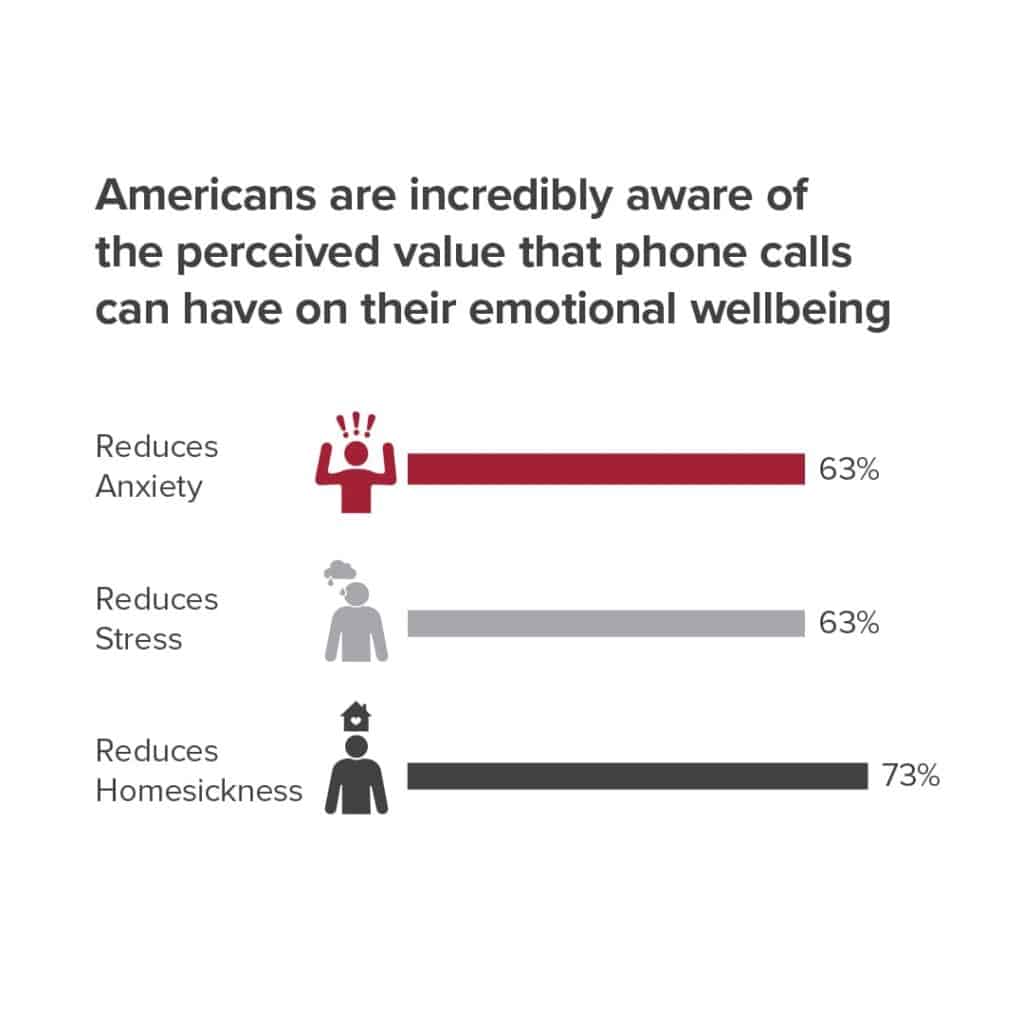Phone Calls Bring Increased Calm and Lowered Anxiety
Posted on 4/28/2020 by Nicholas Jones
On the heels of last week’s survey of 1,000 Americans around how and why people are using the phone, we are unveiling results today from a second study that shows there are real mental and physical benefits to talking on the phone.
This time, we conducted a biometric study to evaluate the potential benefits of talking on the phone as compared to texting or messaging. We paired Gen Z children (18-23) and their moms, and measured Alpha and Beta brain wave patterns to determine the physiological factors happening in the body and conclude to what degree, if any, the participant benefited during phone calls, versus texting. Alpha and Beta waves represent relaxation, calm, and concentration, respectively.
The results showed that versus texting, actually talking on the phone increased calm and peacefulness and lowered stress and anxiety. In fact, the study showed that neural activity among Gen Z respondents is distinctly different when talking as compared to texting, suggesting there are real, tangible benefits to speaking on the phone versus simply sending a message. This backs up our survey findings from last week, which showed that a majority of Americans think phone calls remain important and have positive effects on health and relationships.
The full study, with methodology and complete results, can be found here. Below are a few key findings.
Increased Calm and Peacefulness, Lowered Anxiety and Tension
Five out of six participants (83%) demonstrated increases in calm and peacefulness, as determined by recorded Alpha waves, when speaking on the phone vs. text. Stress indicators were also lowered for Gen Z respondents when talking to their moms. Stress indicators – as determined by evaluating the pattern difference between Alpha (calm, relaxation) and Beta (heightened concentration, focus) – demonstrate that five out of the six participants (83%) felt less anxiety or tension when speaking to their moms. The overall positive impact of the phone call is powerful – Gen Z respondents feel, on average, 64% more relaxed or calm when talking than when texting.
Respondents Said So!
And finally, respondents’ self-reported sense of serenity aligns with the biometric analysis of their brain waves. When asked, eight of the nine respondents preferred talking on the phone compared to texting, citing feelings of relaxation, and decreased tension.
This all backs up our survey from last week, which showed that 6 in 10 Americans recognize that calls can both reduce anxiety (63%) and reduce stress (63%). In the survey, the majority of Americans (63%) said that they feel happy when they see that someone is calling them and 62% feel happier after getting off a personal phone call.

The benefits of the phone call are clear – talking on the phone makes you feel better and can physically decrease stress and anxiety. Of course, you can’t make a phone call when you are contending with a poor signal. Last week, we announced our latest cellular signal booster product, weBoost Installed | Home Complete, with professional installation included. A best-in-class solution for weak or nonexistent indoor cellular coverage, the weBoost Installed Home Complete booster is the first product made for the residential market that also includes professional installation anywhere in the United States. For complete information, visit here.



